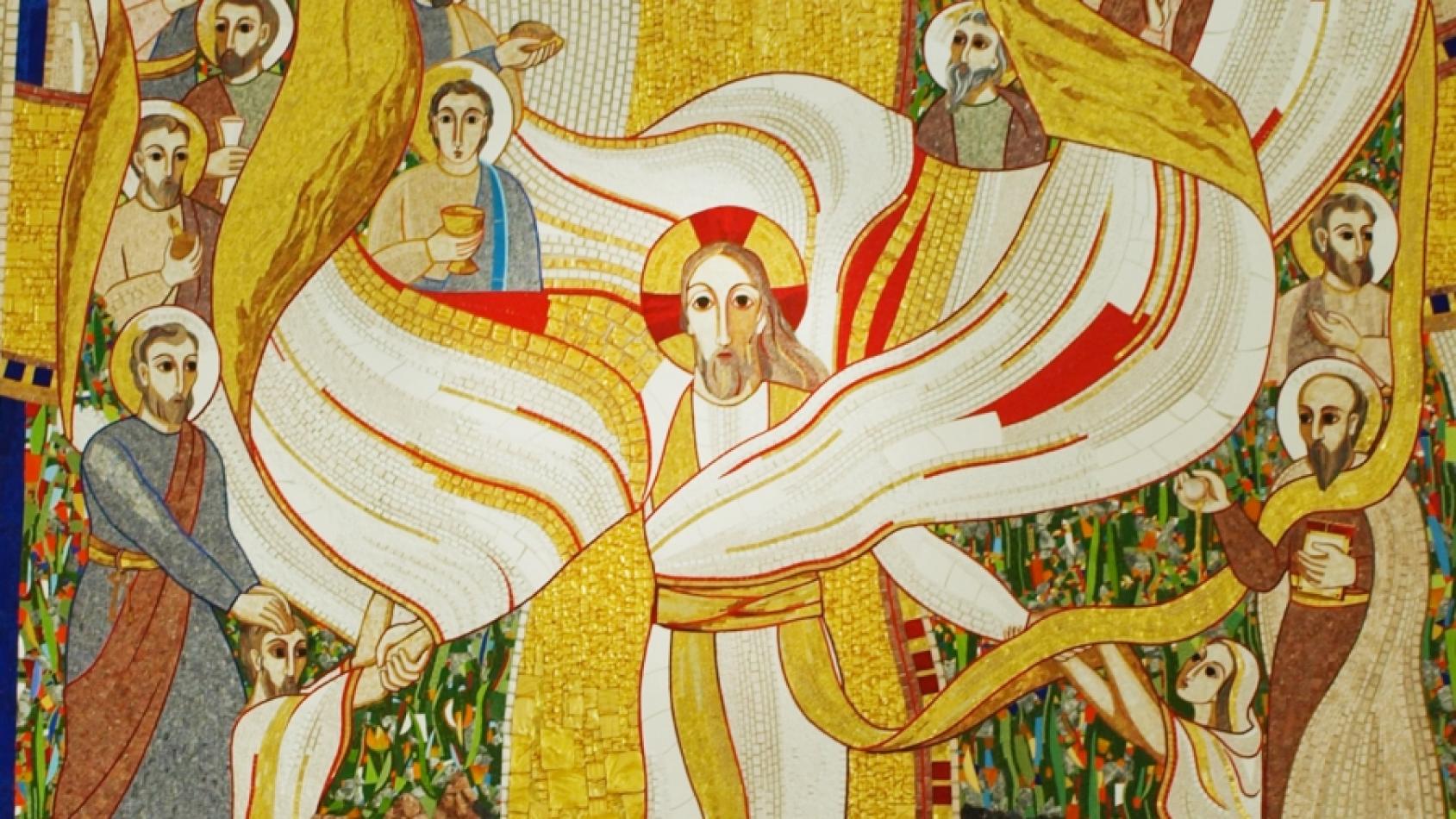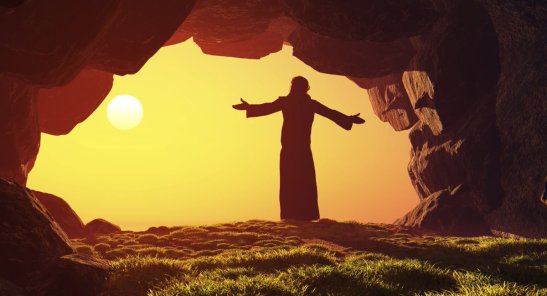Daniel Comboni
Comboni Missionaries
Institutional area
Other links
Newsletter
Jesus didn’t spend much time talking about eternal life. He didn’t try to deceive anyone by coming up with fantastic descriptions of life beyond the grave. However his whole life awakens hope. He goes about easing suffering and freeing people from fear. He transmits complete confidence in God. His passion is to bring about a life that is more human and full of happiness for all, just as the Father of all wants.
Luke 20:27-38
EACH ONE’S DECISION
Jesus didn’t spend much time talking about eternal life. He didn’t try to deceive anyone by coming up with fantastic descriptions of life beyond the grave. However his whole life awakens hope. He goes about easing suffering and freeing people from fear. He transmits complete confidence in God. His passion is to bring about a life that is more human and full of happiness for all, just as the Father of all wants.
It’s only when a group of Sadducees comes along and brings up the idea of how ridiculous it is to believe in the resurrection, that Jesus draws forth from his believing heart the conviction that sustains and energizes his whole life: God «isn’t a God of the dead, but of the living, for to God everyone is alive».
His faith is simple. It’s true that we mourn for our loved ones because, when they die, we have lost them here on earth; but Jesus can’t imagine that for God these children whom God loves so dearly would remain dead. That can’t be. God shares life with them because God has welcomed them into fathomless love.
The feature that is most disturbing about our age is the crisis of hope. We have lost sight of the horizon of a final Future, and the small hopes of this life end up not consoling us. This vacuum of hope is generating the loss of trust in this life for all too many people. Nothing is worth it. That’s why absolute nihilism comes so easy.
In these times of hopelessness, believers and non-believers alike aren’t asking anyone the most radical questions that we have inside ourselves, are we? This God that many may doubt, that so many have abandoned, and about whom others are asking questions – won’t this God be the final basis on which we can support our radical trust in life? At the end of every path, underneath all our dreams, in the depths of our questions and struggles: won’t God be the final Mystery of salvation that we go about seeking?
Faith has ended up for us at this place: cornered somewhere within us, like something of little importance, something that isn’t worth the effort to take care of in these times. Is that right? It certainly isn’t easy to believe, but it is hard to not believe. Meanwhile, the final mystery of life is asking us for a clear and responsible answer.
This answer is each one’s decision. Do I want to wipe out of my life every final hope beyond the grave as a false illusion that doesn’t help us to live? Do I want to stay open to the final Mystery of existence, trusting that there we will find the answer, the welcome and the fullness that we go about seeking from this point on?
José Antonio Pagola
Translator: Fr. Jay VonHandorf
https://www.feadulta.com
GOSPEL REFLECTION
The first reading spoke of the seven brothers. They still had a very imperfect concept of the resurrection. They imagined it as an extension of the life of this world, nothing more. On this issue, even in the time of Jesus, the ideas were not much different.
The Pharisees who firmly professed the faith in the resurrection of the dead continued to interpret it in a rather crude way.
In future life—they said—the joys of this life will be increased dramatically. In heaven, there will be no hunger, disease, suffering, misfortunes. People will enjoy every pleasure; they will have bread, meat, and wine in abundance.
Today’s Gospel introduces a new political-religious group, so far not yet spoken of in the Gospel of Luke, the Sadducees. We know they constituted the class of the rich, who were collaborators of the Roman government. They were not held in good esteem by the people and from the religious point of view, they were conservatives. All chief priests (who were primarily responsible for the death of Jesus) belonged to this sect.
One of the theological issues that placed them at odds with the Pharisees concerned the belief in the resurrection of the dead. While the Pharisees claimed it, the Sadducees argued that in the Torah (the only books of the Bible they recognized as sacred) there is no mention of this topic; accordingly, they declared themselves skeptics. Moreover, with the money at their disposal, they were able to enjoy paradise in this world and no one felt any need to dream of the afterlife.
Pharisees and Sadducees fiercely defended their positions on the Bible and sought reasons to oppose each other.
There were sympathizers of the Pharisees among the people who shared their belief in the resurrection.
Listening to Jesus, the Sadducees one day realize that on this point, he agrees in part with the Pharisees: he believes in eternal life, even though he gives the impression to interpret it in a very original way.
To convince him to change his opinion they resort to a text of the Torah. They outline a curious story (vv. 28-33) and they tell it to him.
The Law of Moses—they say—states that if a man dies without any child, his brother marries the widow. Children born of this new marriage are considered children of the deceased (Dt 25:5-10). Now there was among us a woman who was able to “exhaust” seven husbands, one after the other. Then she died. Now, if we admit the resurrection of the dead, the situation becomes intricate: in the future life which of the brothers will be her husband?
It’s not the first time that the Sadducees use this strange story to embarrass their opponents. For the Pharisees, the objection is extremely serious. They are convinced that eternal life is the perfection of this life. They, therefore, can only lower their eyes, muttering some explanation and moving away quickly among the funny comments of those present.
Jesus understands resurrection so radically different from the Pharisees. He is not at all touched by the objection of the Sadducees. He took the floor and articulates his answer in two parts.
The first: “The sons and daughters of this age marry and are given into marriage, but those of the other world … they are like angels … they are the sons/daughters of God” (vv. 34-36).
The objection of the Sadducees is based on a false assumption that the future life is the continuation (improved and enhanced) of this life and is not accepted by Jesus. He does not preach an awakening from the tomb to resume life as before. Such a thing would be ridiculous, absurd and cruel of God. It would make no sense to die and then return to the same body, the same life.
Life with God is a completely new condition: when introduced into it, a person, while maintaining his/her own identity, becomes a different being, immortal, equal to the angels of God.
How will this life with God be? Here is a question to which we must respond with great caution: because there is an ever-looming danger of projecting the afterlife—as the Pharisees and the Sadducees did. Whatever positive thing we experience here, infinitely multiplied: joys, pleasures, satisfaction and – as the rabbis supported – also the return to married life.
Behind certain statements, certain prayers, certain questions of many Christians today there still lurks, unfortunately, an image of the “resurrection of the dead” similar to that of the Pharisees. The resurrection mentioned by Jesus – the one that puts man in common with the angels of God—is completely different. For Jesus, a person lives on earth as a gestation. S/he prepares for a new birth after which there will be no other because the world s/he will enter will be final. In it, there will not be any form of death.
As the fetus in the mother’s womb cannot imagine the world that awaits him/her, even so, a person is not able to imagine how life will be with God. It’s a mystery that is not revealed, not because the Lord wishes to increase the suspense and surprise, but simply because our mind is not able to understand it. “A perishable body is a burden for the soul and our tent of clay weighs down the active mind. We are barely able to know the things of earth … who then may hope to understand heavenly things?” (Wis 9:15-16)
We can approach this sublime and ineffable reality only through faith, believing that those things that no eye has seen, no ear has heard, nor any mind fathomed, God has prepared for those who love him (1 Cor 2:9).
Instead of inquiring about what we are not able to understand, it is better to dwell on the certainties that the resurrection of Christ offers: in particular the fact that no two lives exist- the present and the future—but one life that continues under two completely different forms.
Death understood as the annihilation of the person, does not exist. It was defeated, destroyed by the death and resurrection of Christ.
What we call death is simply the abandonment of the form of life—weak, fragile, ephemeral—we lead in this world to be welcomed into God’s world.
The mortal body gets sick, withers, ages, and undergoes dissolution and is not introduced into the eternal world. It remains in this world: the person is invested with another body “incorruptible, glorious, full of strength, spiritual” (1 Cor 15:42-43).
The second certainty is that the resurrection of Christ demolished all barriers that separated the living from the dead. An intimate and deep bond unites all. When on earth, we, the living, gather around the Eucharistic banquet, we are in communion with the brothers/sisters in heaven. We are confident that our memory makes them happy, increases our love and theirs, and rekindles our desire and hope to be united one day with Christ and with them.
With our prayers, we tell the deceased that we are happy that they are with God, despite the pain of their loss, alive in us. We tell them that we remember only the good they have done; their help, their gestures of love and their generosity. Their flaws, mistakes, weaknesses have been totally purified by the encounter with the “fire” of God’s love. In them, no form of evil or death remains.
The second part of Jesus’ answer (vv. 37-38) is made up of a clear statement of the truth of the resurrection.
We cannot imagine how life will be with God, but faith gives us the certainty that, after death, the person continues to live.
The evidence Jesus brings to convince the Sadducees is the following: “The Lord, the God of Abraham, God of Isaac and the God of Jacob is not God of the dead, but of the living: because all live for him.” What does he mean to say?
He refers to the authority of Holy Scripture. He says that Moses, who lived many centuries after the death of the patriarchs, calls the Lord: “the God of Abraham, Isaac, and Jacob.”
This means that they were still alive, otherwise Moses and, after him, all the Israelites would have invoked a God of the dead.
How can one imagine a God who creates people, establishes a covenant with them, makes a lot of promises, defends them from their opponents, considers himself their friend and then one day abandons them, makes them disappear in the dust and return to nothing? If he behaves in this way he would be the author of the projects of death. However, Jesus says, he is not the God of the dead but of the living, for he has compassion on all because all is his and He is “a lover of life” (Wis 11:26). He “did not make death nor does he rejoice in the destruction of the living” (Wis 1:13). Nothing that has some connections with death can approach him.
Fernando Armellini
Italian missionary and biblical scholar
https://sundaycommentaries.wordpress.com






